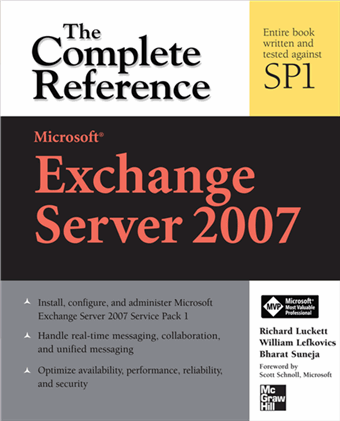Interesting announcement from RIM - it will offer the BlackBerry application suite for devices running Microsoft's Windows Moible 6, which will morph the Windows Mobile device into a BlackBerry at the touch of a button. Sort of.
Once installed, the application will provide users with a "virtual BlackBerry appearance" - including support for BlackBerry email, phone, calendar, address book, tasks, memos, browser, instant messaging, and other apps for BlackBerry. Users will be able to use BlackBerry email using a BlackBerry Enterprise Server (BES) or BlackBerry Internet Service.
According to RIM, this will expand user's device options.
Though Windows Mobile seems to be gaining ground slowly, the BlackBerry juggernaut seems to show no signs of slowing down - the growth pattern continues.
However, RIM does seem to be sending the signal that the device itself isn't as important. Not too long ago, it extended BlackBerry email functionality to devices running Palm OS, in partnership with PalmSource. Users addicted to the Palm OS can use BlackBerry Connect software on their Palm devices, and get access to BlackBerry email. With BlackBerry application suite for Windows Mobile devices, users of both the leading (non-BlackBerry) smartphone/PDA platforms will be able to get BlackBerry service.
Competing smartphone manufacturers have recently stepped into RIM's turf. Motorola's MotoQ smartphone (another over-hyped but mostly disappointing product, imo. I was without a cell phone for a week, and switched providers when Verizon launched the Q) introduced Windows Mobile users to the "thumb wheel". Used to easily navigate through a list of email messages using a thumb, it has been one of the more distinguishing features of BlackBerries. (Along with what may be the first QWERTY keyboard on such devices that allowed users to easily type entire email messages using a thumb, the thumb wheel is responsible for "BlackBerry Thumb" - a term used to describe the soreness caused by "spending hours on a hand-held email device").
RIM's own devices increasingly display more design savvy - they're getting thinner & sexier, sporting better displays and more consumer-oriented features like GPS, voice-activated dialing, and ability to play music and video clips. (I like the BlackBerry 8800. I've given up on Windows Mobile devices for now - after having tried a number of them over the past year or two. As of now, I don't carry any mobile devices other than a plain old cell phone. I'm looking for a Windows Mobile device that's compelling enough... hopefully it'll show up this year - Bharat)
Nevertheless, the lure of Windows Mobile will be hard to resist for users, and for organizations considering deploying mobile devices. It offers the familiarity of desktop operating system that most of us use - making users feel at home instantly. Windows Mobile OS gets better with every version, and its integration with Exchange Server's ActiveSync feature allows organizations to deploy mobile email without having to invest in separate servers like RIM's BlackBerry Enterprise Server solution does.
It will be interesting to watch how RIM's BlackBerry application suite for Windows Mobile 6 fares.
It will be a lot more interesting if RIM offers the "BlackBerry experience" on the-yet-to-be-released-but-most-hyped-product-on-earth - Apple's iPhone [read previous post - "iPhone buzz refuses to die down after a Mac-less MacWorld"], which lacks any business email features. But I'm not holding my breath just yet.
Once installed, the application will provide users with a "virtual BlackBerry appearance" - including support for BlackBerry email, phone, calendar, address book, tasks, memos, browser, instant messaging, and other apps for BlackBerry. Users will be able to use BlackBerry email using a BlackBerry Enterprise Server (BES) or BlackBerry Internet Service.
According to RIM, this will expand user's device options.
Though Windows Mobile seems to be gaining ground slowly, the BlackBerry juggernaut seems to show no signs of slowing down - the growth pattern continues.
However, RIM does seem to be sending the signal that the device itself isn't as important. Not too long ago, it extended BlackBerry email functionality to devices running Palm OS, in partnership with PalmSource. Users addicted to the Palm OS can use BlackBerry Connect software on their Palm devices, and get access to BlackBerry email. With BlackBerry application suite for Windows Mobile devices, users of both the leading (non-BlackBerry) smartphone/PDA platforms will be able to get BlackBerry service.
Competing smartphone manufacturers have recently stepped into RIM's turf. Motorola's MotoQ smartphone (another over-hyped but mostly disappointing product, imo. I was without a cell phone for a week, and switched providers when Verizon launched the Q) introduced Windows Mobile users to the "thumb wheel". Used to easily navigate through a list of email messages using a thumb, it has been one of the more distinguishing features of BlackBerries. (Along with what may be the first QWERTY keyboard on such devices that allowed users to easily type entire email messages using a thumb, the thumb wheel is responsible for "BlackBerry Thumb" - a term used to describe the soreness caused by "spending hours on a hand-held email device").
RIM's own devices increasingly display more design savvy - they're getting thinner & sexier, sporting better displays and more consumer-oriented features like GPS, voice-activated dialing, and ability to play music and video clips. (I like the BlackBerry 8800. I've given up on Windows Mobile devices for now - after having tried a number of them over the past year or two. As of now, I don't carry any mobile devices other than a plain old cell phone. I'm looking for a Windows Mobile device that's compelling enough... hopefully it'll show up this year - Bharat)
Nevertheless, the lure of Windows Mobile will be hard to resist for users, and for organizations considering deploying mobile devices. It offers the familiarity of desktop operating system that most of us use - making users feel at home instantly. Windows Mobile OS gets better with every version, and its integration with Exchange Server's ActiveSync feature allows organizations to deploy mobile email without having to invest in separate servers like RIM's BlackBerry Enterprise Server solution does.
It will be interesting to watch how RIM's BlackBerry application suite for Windows Mobile 6 fares.
It will be a lot more interesting if RIM offers the "BlackBerry experience" on the-yet-to-be-released-but-most-hyped-product-on-earth - Apple's iPhone [read previous post - "iPhone buzz refuses to die down after a Mac-less MacWorld"], which lacks any business email features. But I'm not holding my breath just yet.
Labels: Mobility - BES/ActiveySync, Newsbytes

 Exchangepedia Blog is read by visitors from all 50 US States and 150 countries world-wide
Exchangepedia Blog is read by visitors from all 50 US States and 150 countries world-wide



4 Comments:
Hi,
Well Blackberry handset which provide lot of its advance information that who to use it.
I can't see the Windows platform ever overtaking the Blackberry as I think people have a inherent mistrust of Microsoft. It's more likely that the Google Android will take over.
It will be interesting to watch how RIM's BlackBerry application suite for Windows Mobile 6 fares.
Who would have thought this would go on to be such a popular product? I couldn't live without mine
Post a Comment
Links to this post:
Create a Link
<< Home